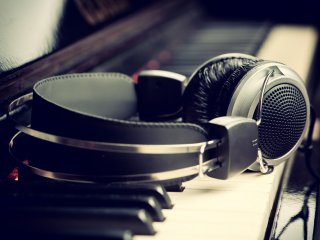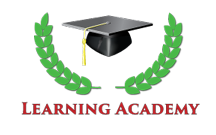
- Description
- Objectives
- Outline
- Materials
- System Requirements
- Watch a Demo
What does music mean to you? Do you find yourself lost in your favorite song or style of music? We all listen to music for different reasons. It may be to help motivate us during exercise, to relax, or just to pass the time. Whatever the reason for listening, music impacts almost everyone in some way. Technology has made music accessible in new and exciting ways. So, why is music so appealing? Research supports the healing power of music that is both pleasurable and therapeutic. This music appreciation course includes many exciting tools to expand your knowledge of music through listening exercises and guides. Get ready for a journey through music that will take you around the world and throughout history.
Prerequisite(s): None
After completing this course, you should be able to:
- Recognize how we perceive music
- Recall the primary genres, venues, and major composers of classical music
- Identify where and how to listen to music
- List the fundamentals of music and how they are used
- Identify the major periods of music and defining characteristics of each
Music Appreciation Module 1
Listening to Music
- Processing Music
- Musical template
- Popular vs. Classical Music
- The Venues of Classical Music
- Where and How to Listen to Music
Music Appreciation Module 2
Elements of Music
- Rhythm in music
- The melodic contour in music
- Meter and Scale
- What is tonality?
- Primary Musical Textures
- Creating Musical Form
- Types of Musical Instruments
Music Appreciation Module 3
The Middle Ages and Renaissance
- Medieval Monastic Music: Gregorian Chanting
- Musical Style in the Age of the Cathedrals
- Renaissance Music Features
- The Importance of Meaning in Music
Music Appreciation Module 4
The Baroque Period
- Similarities of Baroque Music, Architecture, and Painting
- Characteristics of a Baroque opera
- The Baroque Orchestra
- The Structure of a Fugue
- Bach’s Orchestral Music
- The Church Cantata
- Handel and the Orchestral Dance Suite
- Difference Between an Opera and Oratorio
Music Appreciation Module 5
Classical Styles and Forms
- What Are the Enlightenment’s Effects on Society and Music?
- What is a Comic Opera?
- Careers of Haydn and Mozart in Vienna
- What is a Ternary Form?
- The Sonata-Allegro Form
- Themes and Variations in Pieces by Mozart and Haydn
- Typical Patterns of Rondo Form
- Intersection of Form and Mood
Music Appreciation Module 6
Classical Genres
- String Quartet Ensemble vs. Symphony Orchestra
- Opera During the Baroque and Classical Periods
- Vocal Ensemble
- How Mozart changed Opera
- Three Periods of Beethoven’s music
- Beethoven as a Representation of the Classical and Early Romantic periods
Music Appreciation Module 7
Romantic Music
- Characteristics of Romantic Music
- The Art Song
- Program Music
- Ballet Music
- Musical Nationalism
- Piano Music
Music Appreciation Module 8
Opera
- Italian Bel Canto Opera
- The life and music of Giuseppe Verdi
- Germany and Nordic Fantasy Literature
- Richard Wagner and his “Music Dramas”
- Georges Bizet’s Opera Carmen
- Giacomo Puccini’s Opera La Bohéme
- Romantic Values and Today’s Concert Hall
- Johannes Brahms
- Antonín Dvo.rák
- Gustav Mahler
Music Appreciation Module 9
Modernism
- Impressionism
- Préludes for Piano
- Exoticism in Music
- From Impressionism to Modernism
- Melody: More Angularity and Chromaticism
- Igor Stravinsky and Le Sacre du Printemps
- Percussive Orchestra
- Arnold Schoenberg and atonal music
- Twelve-Tone Music
Music Appreciation Module 10
American Modernism and Postmodernism
- The Music of Charles Ives
- Samuel Barber and Adagio for Strings
- Aaron Copland and Open Scoring
- Appalachian Spring
- Concerto Grosso and Ellen Taafe Zwilich
- Postmodernism
- Edgard Varése and Electronic Music
- Caroline Shaw: New Model for Classical Music
Music Appreciation Module 11
American Popular Music
- Early American Psalms, Hymns, and Gospel Singing
- Country Music
- Blues
- Early Jazz
- From Tin Pan Alley to Broadway
- Bebop
- Other Jazzes: Cool and Modal
- The Broadway Musical
Music Appreciation Module 12
Music for the Media and Rock
- The Dawn of Film Music
- The Era of TV Music
- The Dolby Sound Era
- Music for Games and Computers
- Rock and Roll and Evolving Rock Substyles
- Thriller and Music Videos
**Outlines are subject to change, as courses and materials are updated.**
Ed4Career is committed to being both environmentally conscious and making it easier for you to study! We’re making your education mobile! All of our textbooks are now provided as eTextbooks. You can access them on your laptop, tablet, or mobile device and can study anytime, anywhere.
The move away from physical books to eTextbooks means you get the latest, most up-to-date version available. This also makes your training more accessible, so you can study anywhere you have your phone or tablet. The best part is that all materials are included in your training cost so there are NO extra fees for books!
Internet Connection
- Broadband or High-Speed - DSL, Cable, and Wireless Connections
*Dial-Up internet connections will result in a diminished online experience. Classroom pages may load slowly and viewing large audio and video files may not be possible.
Hardware Requirements
- Processor - 2GHz Processor or Higher
- Memory - 1 GB RAM Minimum Recommended
PC Software Requirements
- Operating Systems - Windows 7 or higher
- Microsoft Office 2013 or higher. Also, you could use a general Word Processing application to save and open Microsoft Office formats (.doc, .docx, .xls, .xlsx, .ppt, .pptx)
- Internet Browsers - Google Chrome is highly recommended
- Cookies MUST be enabled
- Pop-ups MUST be allowed (Pop-up Blocker disabled)
- The Kindle Reader App or VitalSource Bookshelf App are needed for many of our courses (No special equipment needed. This can be downloaded for FREE onto your computer.)
- PowerPoint Viewer (if you do not have PowerPoint)
- Adobe PDF Reader
- QuickTime, Windows Media Player &/or Real Player
MAC Software Requirements
- Operating Systems - Mac OS x 10 or higher with Windows
- Mac office programs or a Word Processing application to save and open Microsoft Office formats (.doc, .docx, .xls, .xlsx, .ppt, .pptx)
- Internet Browsers- Google Chrome is highly recommended
- Cookies MUST be enabled
- Pop-ups MUST be allowed (Pop-up Blocker disabled)
- The Kindle Reader App or VitalSource Bookshelf App are needed for many of our courses (No special equipment needed. This can be downloaded for FREE onto your computer.)
- PowerPoint Viewer (if you do not have PowerPoint)
- Adobe PDF Reader
- Apple QuickTime Media Player


